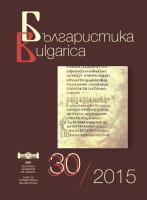
Книги 2014–2015 г.
Selected bibliography in the field of Bulgarian Studies published in 2014-2015
More...We kindly inform you that, as long as the subject affiliation of our 300.000+ articles is in progress, you might get unsufficient or no results on your third level or second level search. In this case, please broaden your search criteria.

Selected bibliography in the field of Bulgarian Studies published in 2014-2015
More...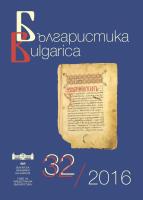
Selected bibliography in the field of Bulgarian Studies published in 2015-2016
More...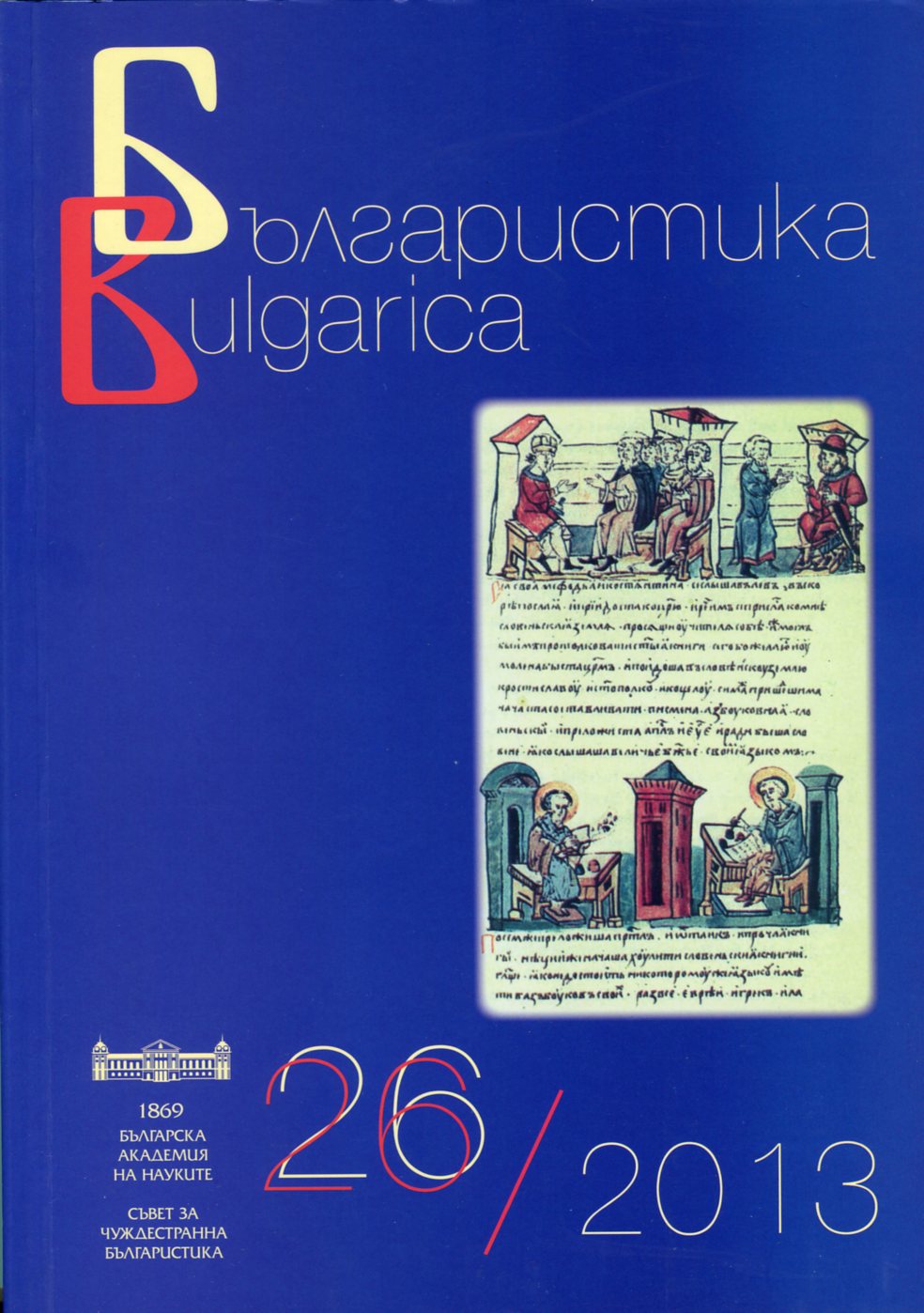
Selected bibliography in the field of Bulgarian Studies published in the current year.
More...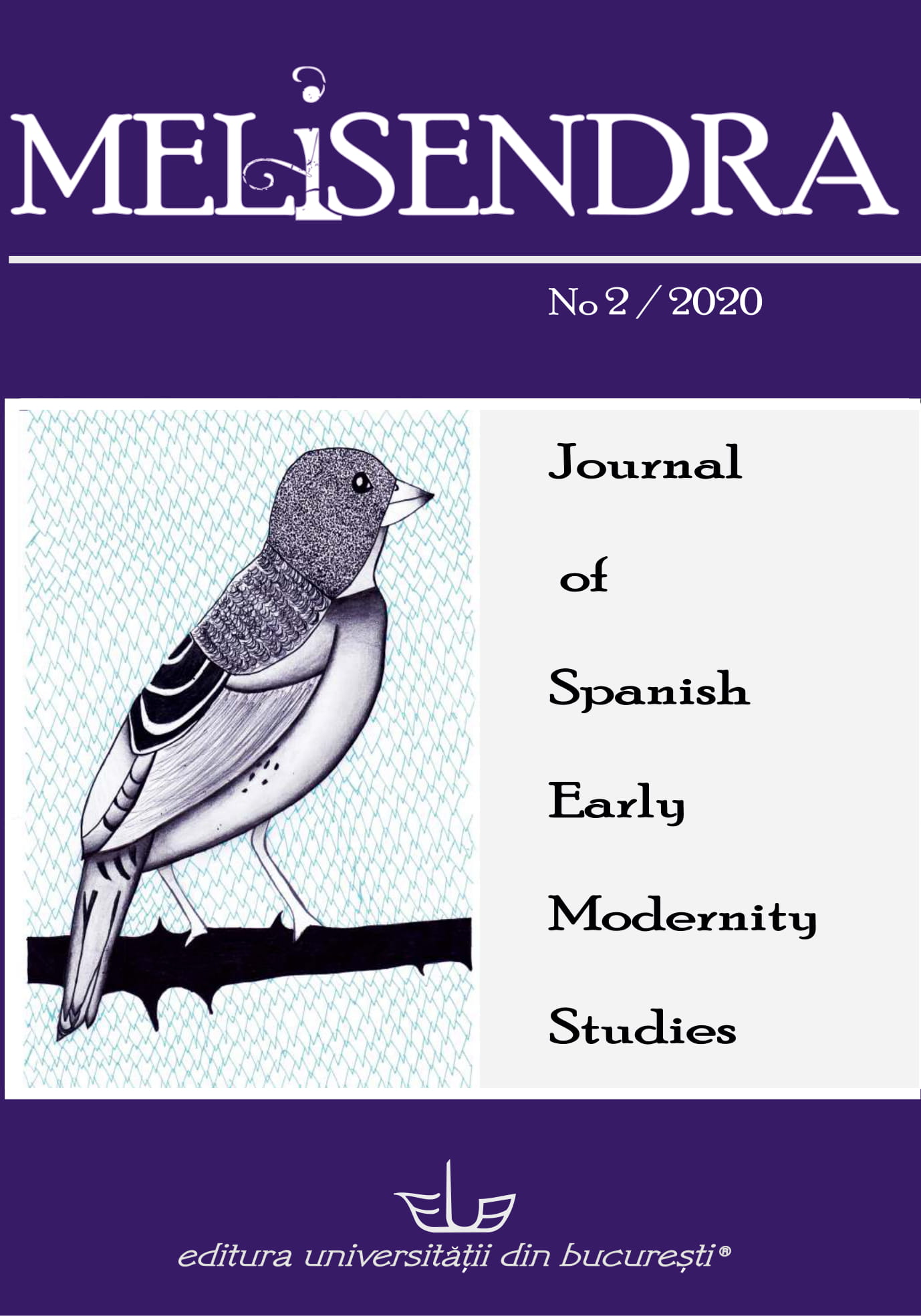
Se estudia el enfoque que se le dio a la lactancia materna en diversos textosde la temprana modernidad: obras médicas de los siglos XV al XVII del Viejo y delNuevo Mundo y crónicas de la conquista espiritual de América. El corpus textualseleccionado lo unifica su marcado providencialismo y su potestad Divina. Se proponeubicar estas obras desde una tradición que toma en cuenta el eclecticismo y eldinamismo en la materialidad de la cultura escrita: siempre se construye un texto a partirde distintas fuentes para conseguir, de modo activo, algo novedoso. Con base en esto, sedestaca que los autores médicos y cirujanos de esta clase de obras crearon unametatextualidad en dos sentidos: uno propio del quehacer del arte médico y otromeramente literario. Finalmente, se propone entender las funciones de los autoresdentro del entramado al que invita su discurso normativo de estilo áspero, desde el cualdefendieron la idea de un paraíso en el Nuevo Mundo ante el cisma que tuvo la Iglesiaen el siglo XVI.
More...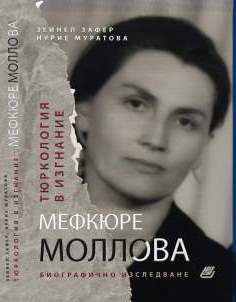
Mefküre Mollova was the first Turkish woman and university professor in Bulgaria, who defended her Ph.D. thesis in the field of turkology and gained international fame for her research. She is the author of over 150 publications in prestigious international journals that continue to be cited today. Mefküre Mollova was among the founders of the Turkish Philology at the University of Sofia. She had worked for only about 7 years (1953-1961), when she and her husband were dismissed from their academic positions on false claims, and the Department was closed. She remained outside the academia until the end of her life.
More...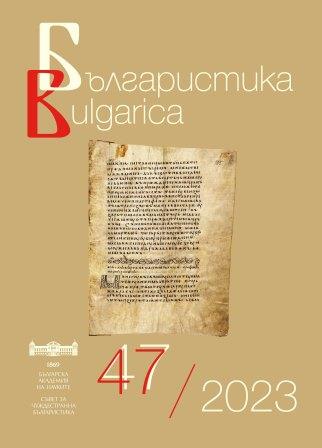
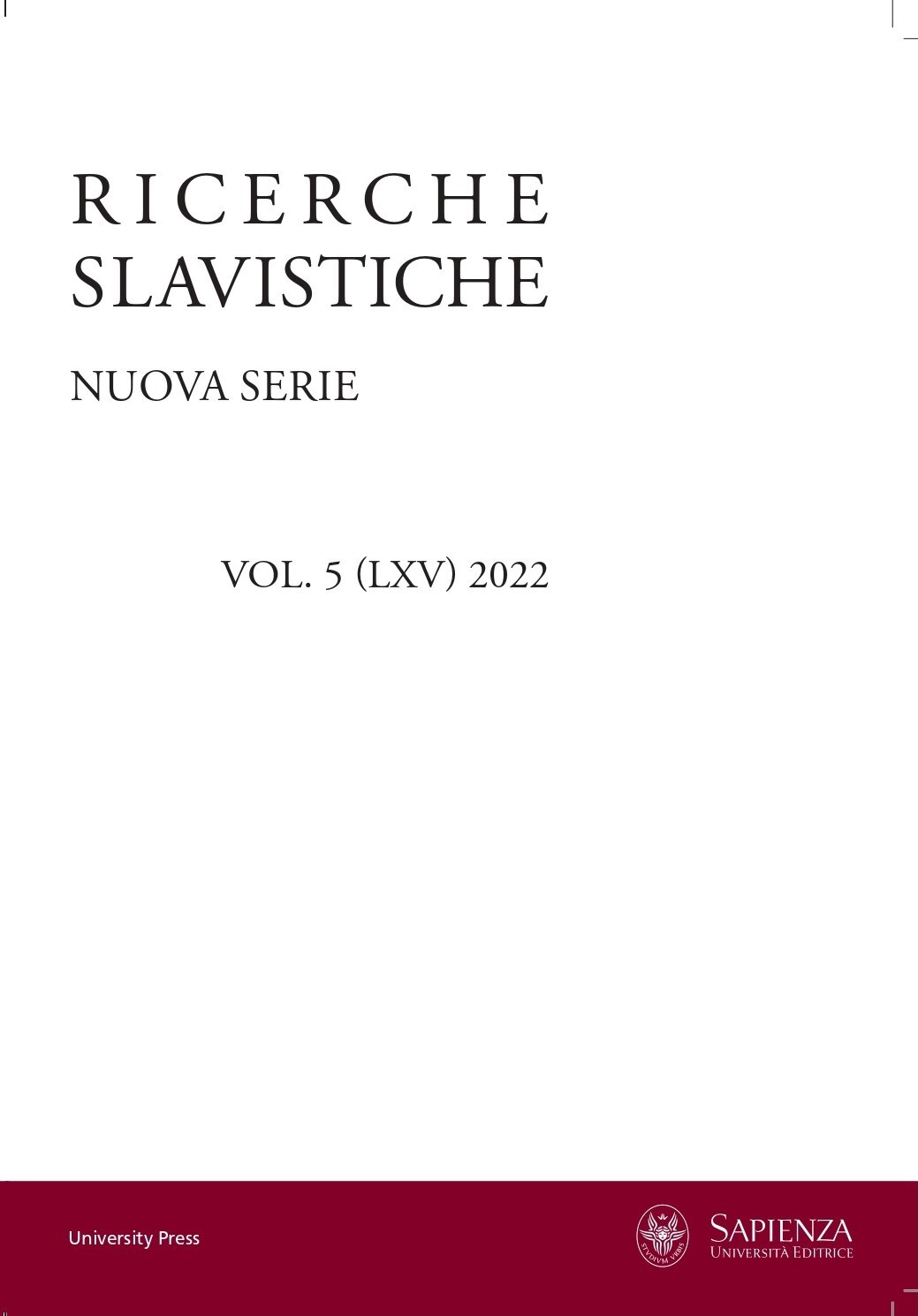
Serbocroatistic contributions have been published on the pages of “Ricerche slavistiche” since 1952, when this academic journal of Slavic Studies was founded by Giovanni Maver at the University of Rome (now Sapienza University). Articles and reviews on various Serbocroatistic topics (that is concerning linguistics, literary history, literary criticism, culture) have been appearing in this journal with such a continuity that they can be included among the most frequent ones.
More...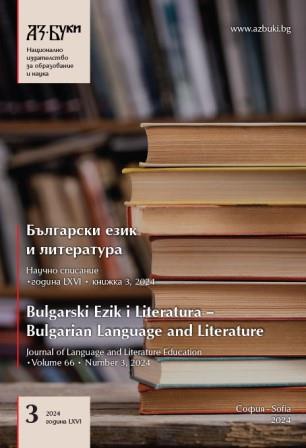
This text explores the potential for updating the phraseological fund of the Bulgarian language in the Bulgarian public discourse and examines the influence of different types of updates on the specifics of the functioning of the given phraseological units in public speech. The most visible updates are those that clearly introduce new elements into the meaning of the original sustained phrase, but at the same time retain the obvious connection to the original language unit. Phraseological units, which are generally distinguished by semantic indivisibility, stability of their lexical composition, invariable structure, imagery, emotionality and expressiveness, are subject to dynamic changes occurring in Bulgarian language in recent years. We direct our interest to stable expressions, in the composition of which a new component appears as a manifestation of lexical dynamics, which replaces an already established one, or an additional element appears in the structure of a phraseology, i.e. our attention will be directed mainly to the so-called lexical updates of the phraseological fund. In the text, we trace the change (structural and semantic) in a number of phraseological units in the Bulgarian language, in which the entry of the lexical component kopeyka is observed. The excerpted material is from two corpora – CLASSLA-web.bg (Bulgarian web) and the corpus of parliamentary speech ParlaMint corpus: https://www.clarin.si/ske/#concordance. The examples extracted from the corpora are relevant for tracking the changes we are interested in in the phraseological fund of the modern Bulgarian language.
More...
From industry to teaching, being competent implies knowing how to do things in a complex, adaptable, and reflective way in a variety of contexts. It involves the integration of knowledge, procedures, attitudes, and values whose mastery and application change throughout life. Besides this idea of being adaptable, we want to add the “just-in-time approach” (JIT approach), which had a boom during the pandemic of COVID-19 and which focused on providing learners with the language skills and knowledge they needed at the precise moment they required to accomplish a specific task or communicate effectively in real-life situations. Unfortunately, it also proved that a generation gap existed between 20-year-old students and their teachers of older generations. Current officer cadets have not lived without mobile phones or the Internet which drastically have changed the way we communicate and had a significant impact on our lives. New technologies made communication more accessible and convenient with beloved ones, colleagues, and the conduct of business operations. Networking was not only advisable but a must and the pandemic proved how useful online teaching was and how well-adapted our cadets were. New technologies made it possible to access the Internet from anywhere, providing instant access to information, entertainment, and services.
More...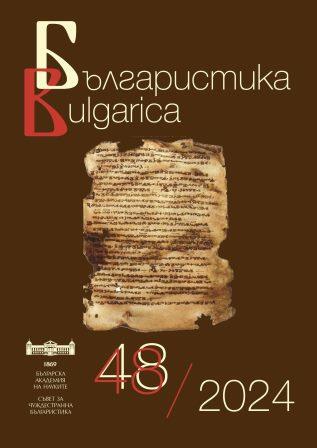
Data about scientific events in the field of the humanities in Bulgaria in the first half of 2024.
More...
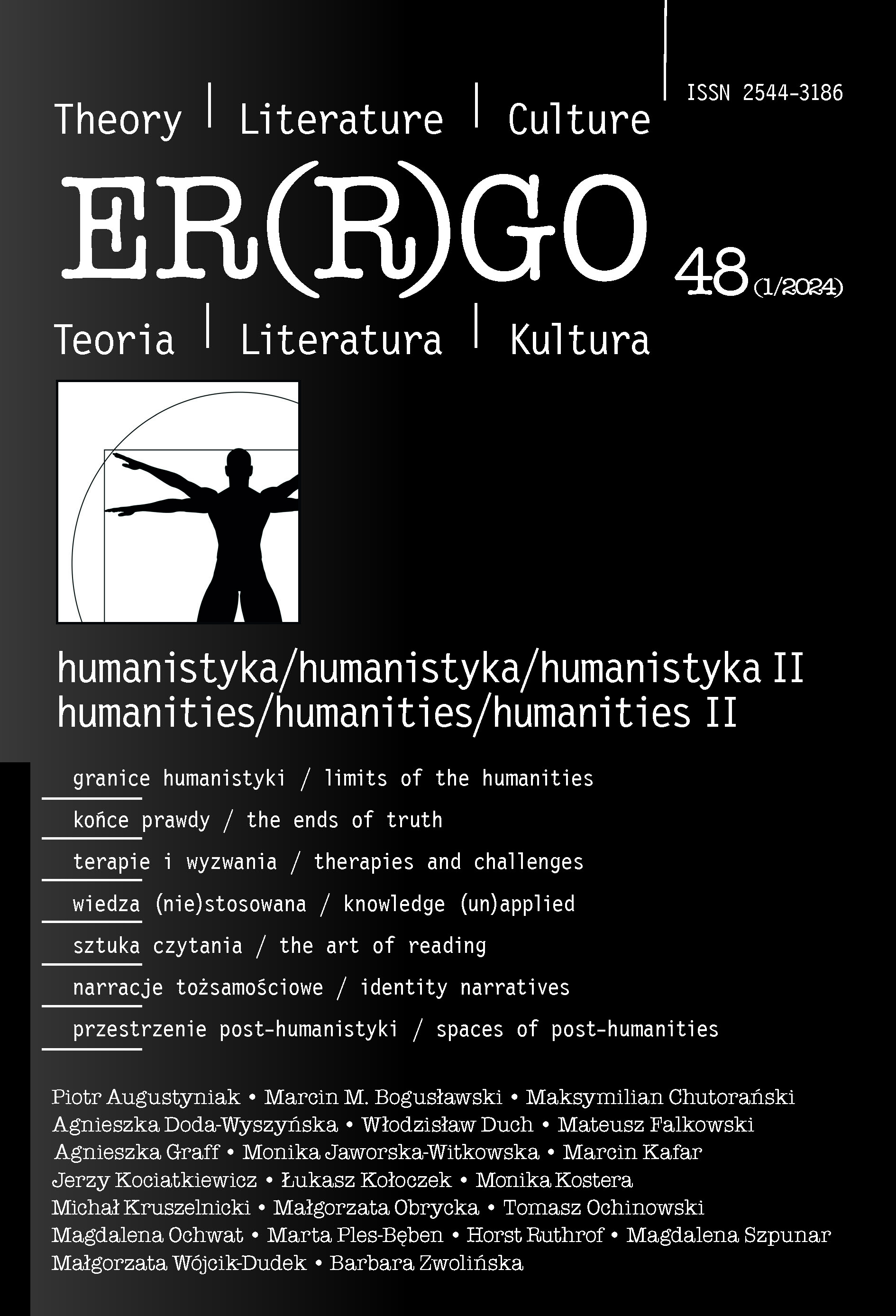
This article is about philosophy as a path, leading man, a civilised being, to re-establish communication with what Gilles Deleuze calls “primordial nature.” This foundational phenomenon, being the primary reservoir of life energy, underpins the existence of the human civilised world. However, by the same token, this phenomenon, since exempt from conditioning and subject to no restrictions or constraints, can disrupt the functioning of this world. Thus, disengagement from primordial nature is the fundamental purpose of the existence of civilization. Unfortunately, its development over time excessively diminishes that connection, deepening alienation, frustration and aggression in social life. I will undertake to demonstrate that the practice of philosophy can be one of the basic ways of coping with that inevitable civilisational impasse.
More...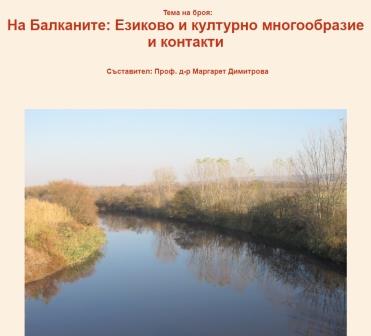
This paper approaches the naming word order in Bulgarian dialects from different regions of the country and from Bessarabia. In these dialects, the family name is placed first, then the father’s name follows, and the given name stands at the end. The author supposes that this phenomenon has appeared in the Bulgarian dialects under Greek and Turkic influence.
More...
The paper gives information on a medieval Slavonic translation of the Vita of St. Sabbas the Sanctified. A Middle Bulgarian copy of the translation (manuscript no. 226 of the 14th century, kept in Hilandar Monastery on Mount Athos) is edited with variant readings from two other copies: Hilandar 432 and Dragomirna 706.
More...
The author compares the lexical choices in three translations of Solomon’s Song made from Greek disseminated in medieval Slavonic Cyrillic manuscripts: an early translation of the late 9th or early 10th century and two later ones imbedded in catenae.
More...
The article explores Instapoetry, a genre emerging through social media, particularly Instagram, that has revolutionized modern poetry. Characterized by its concise, accessible form, it blends visual art with minimalistic verse, attracting a diverse, global audience. Prominent figures like Rupi Kaur, Lang Leav, and Atticus have led this movement, turning their personal reflections into widely shared expressions. Instapoetry's impact lies in its ability to democratize poetry, making it more inclusive while challenging traditional literary norms.
More...
Through constantly-surprising breakthrough into the numinous space, the religious man follows his path towards the full experience of the sacred, thus positioning himself in a state of anticipation of the encounter with the numinous – therefore in a closeness toward the numinous as the Other. This closeness toward an imminence will in turn impose an interpretive reporting on both the context and the Other – therefore a positioning through an enunciation with the intention of preparing an understanding of these states. However, preparing this enunciation related to the future encounter with the numinous does not only mean building a space, but also orientation towards a sense. By orientation towards sense, it becomes necessary to build a statement that follows a dynamic composition of signs and senses through which the positioning – of oneself and towards the Other – becomes an enunciation with meaning.
More...
The purpose of this article is to present, in the form of lexical notes, particular cases of popular etymologies in plants and to highlight the adaptation and effective use of plant names that proves to be appropriate, well circumstantiated, taking into account their subodoxastic knowledge in this semantic relationship.
More...
The Latin-Romance direction and the modernization of the Romanian literary language in the 19th century are two essential aspects in the development of modern Romanian, reflecting both external influences and the need for modernization and standardization of the national language. The Latin-Romance direction was a cultural and linguistic movement that promoted a return to the Latin origins of the Romanian language, in the context of the development of national consciousness and Romanian cultural identity. This movement was supported by the intellectual and political elites of the time, who viewed Latinity as a foundation of Romanian national culture and as a link to Western Europe. The modernization of the language also involved the adoption of neological borrowings, with French being the most influential language in this process, mainly due to the cultural and political prestige of France during this period. Due to its cultural proximity and shared Latinity, Italian was another important source of borrowings, particularly in the fields of arts and literature.
More...
In the evolution of Romanian civilization, the topic of gastronomy is not of particular interest among intellectuals, but, as Eugen Simion noted, writers – such as Costache Negruzzi and Mihail Kogălniceanu – were among the ones to ”display some sensitivity to what is called the gourmet discourse.” In this context, it is worth mentioning that Costache Negruzzi’s library included ”The Physiology of Taste”, written by Brillat – Savarin, whom Honoré de Balzac considered one of the great prose writers. Although gastronomy was not a fundamental dimension of his work, Kogălniceanu’s sensitivity to gastronomy is evident in many of his writings – elements of culinary art were incorporated both into his own lifestyle and the lives of his characters – and throughout his correspondence. In doing so, Kogălniceanu not only shaped the historical physiognomy of his era but also highlighted the refinement and good taste of certain social classes in mid-19th century Moldova.
More...